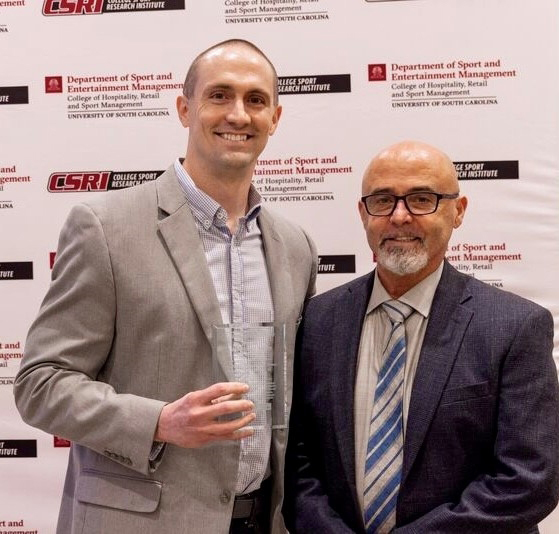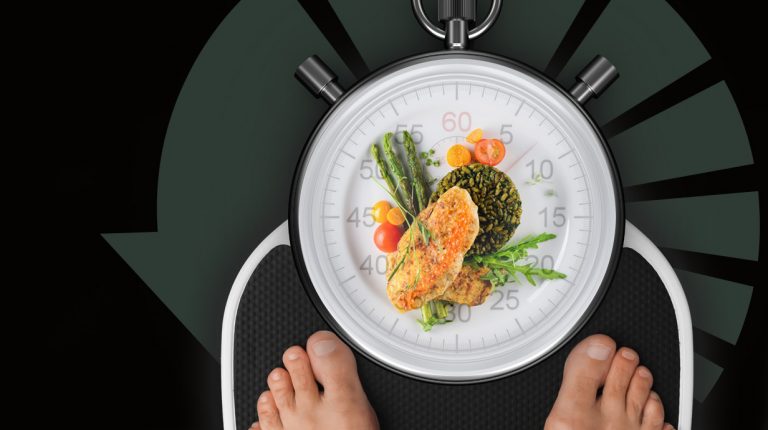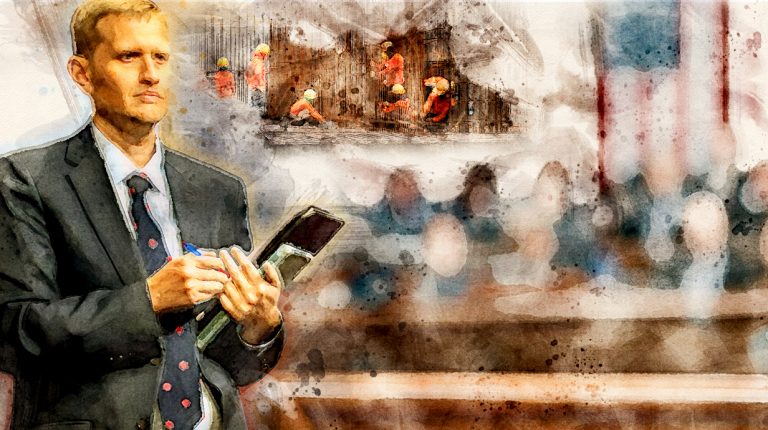
Brennan Berg (left), associate professor and program director of sport and recreation administration at the University of Mississippi, accepts the Outstanding Article Award on behalf of his research team from Richard Southall, of the College Sport Research Institute. Berg's team studies policy issues related to name, image and likeness right for college athletes. Submitted photo
Brennan Berg and Andre Simmond 2023 recipients in Journal of Issues in Intercollegiate Athletics
by Edwin Smith
Many college athletics administrators, including leaders of the NCAA, have lobbied the U.S. Congress to step in and help regulate the evolution of college sports, particularly the emergence of name, image, and likeness (NIL) rights for student-athletes.
Meanwhile, the real action has been happening in state legislatures across the country, and the NCAA should pay closer attention to what is happening there, two University of Mississippi researchers contend.
Brennan Berg, associate professor and program director of sport and recreation administration; and Andre Simmond, instructor in sports and recreation, studied how the perceptions of student-athletes’ rights to profit from NIL have changed, both among the general public and with policymakers. They collaborated with researchers at the universities of Houston, Memphis, and South Florida and their results, published in the Journal of Issues in Intercollegiate Athletics, have drawn widespread praise.

“The changed perception that college athletes should be permitted to engage in NIL opportunities represents a profound and historic transfer of power and evolution on college athletics,” said Berg, the study’s principal investigator. “In past generations, the NCAA and its amateurism model were supported through many judicial rulings and public policies. That is no longer the case.”
It is critical that governing bodies of collegiate athletics stay active in the policymaking process, given the long-term and sizeable effect government action can have on sports, he said.
“Our study highlights how significant public policy can be for sport when government officials intervene,” Berg said. “The NCAA seemingly focused most of its legislative and legal efforts at the federal level but were noticeably absent in the three states (Florida, Tennessee, and Texas) examined in this study.
“As a result, the universities in each state, particularly those with Division I FBS athletic departments, were the most influential stakeholders informing elected officials on why and how the NIL legislation should be crafted. College athletes had minimal representation or input in the NIL policymaking process.”
Berg said it is notable how state legislators compared themselves with one another not only to justify giving the issue legislative attention, but also in deciding the parameters of NIL.
“The political costs of inaction and not addressing a perceived competitive disadvantage for states’ athletic departments compelled policymakers to envision new regulatory measures that would drastically alter college athletics,” he said.
“It is critical to note that policymakers who participated in this study realized their state’s universities would not gain a competitive advantage by having NIL policy in place, but would avoid a competitive disadvantage by not having NIL legislation in place.”
The team is continuing its examination of policy making for college athletics. They are completing a new report, this one evaluating best practices for supporting college athletes in the context of NIL, using data from athletic administrators at multiple universities.

This work is critical to help administrators stay abreast of policy developments, Simmond said.
“The world of collegiate athletics is ever-changing, and I believe it is important for scholars to continue to examine those changes and how they relate to key stakeholders,” he said.
The study was funded by the American Athletic Conference, which includes the universities of Memphis and South Florida.
The College Sport Research Institute recently named the report as co-winner of its 2023 Outstanding Article Award. The institute, which publishes the Journal of Issues in Intercollegiate Athletics, announced the awards at its annual meeting in Columbia, South Carolina.
“Given the many excellent scholars who regularly publish in JIIA, which has made it one of the leading outlets for research on college athletics, this is quite an honor being recognized as the outstanding article for 2023,” Berg said. “My hope is that more conferences, and perhaps athletic departments, will regularly fund research on issues affecting college athletics and athlete well-being.”



